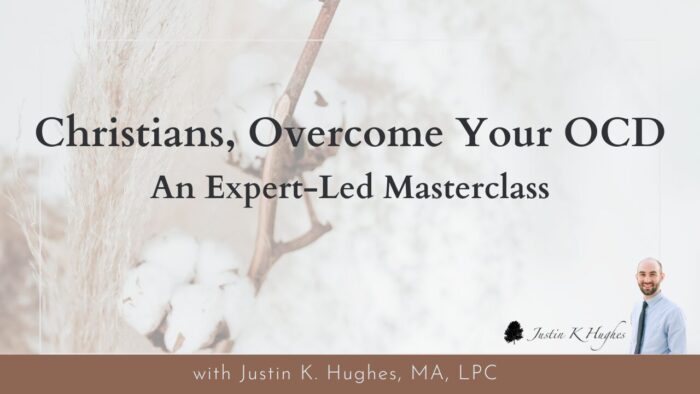
I’m just gonna say it: EMDR (Eye Movement Desensitization and Reprocessing) is not an established evidence-based treatment for OCD. It is not a first line treatment (aka, best first pick), nor does it have any specific research backing as a comprehensive OCD treatment at this time.
Does EMDR Treat OCD?
This topic is raised often by OCD sufferers: “Does EMDR help with OCD?” Unfortunately, many people I have talked to discovered it was, at best, a waste of time, and at worst, made the cycle of OCD worse.
There may be many reasons for this, but one suggestion for why its treatment effects are lacking can be for the same reason that general supportive psychotherapy isn’t a standalone for OCD (i.e., talk therapy, which is often about processing, increasing insight, and letting a client steer many topics of importance): it often gets wrapped up in the details and content of obsessions that the sufferer must learn to NOT give more attention to. Another way to put it is that talk therapy and EMDR can actually facilitate clients actively compulsing in session.
If you haven’t yet discovered effective treatments for OCD, check out my introduction to OCD here, along with my ERP 4 OCD training on YouTube for a 90 minute intro deep dive.
I have very close friends who practice EMDR for the domains of trauma, grief, and loss- with great success. I believe that most likely those who attempt its use it for OCD were likely well-intentioned.
EMDR has been researched some concerning OCD and there are preliminary considerations that might be helpful. Let’s continue to stay open to new possibilities. But the point of this post is that there are gold standard treatments for OCD, namely Exposure and Response Prevention and SRI’s. To change from these, there needs to be thoughtfulness, intentionality, and research rather than capriciousness, “one size fits all”, and a lack assessment and specific protocols.
Is EMDR useful?
Can EMDR help someone who has OCD? Of course! It’s just not the primary treatment and it really is only appropriately used if a person has been thoroughly assessed and it’s used as indicated. It is very effective for processing of trauma, grief, and loss.
There is research that indicates it may serve as a useful adjunct in ERP, but again, just to be clear, it is not a first line treatment.
An ‘Axe to Grind?’
OCD experts have no ‘axe to grind’ with EMDR. It’s amazing and very effective in its own right, such as in the treatment of PTSD (where it is a first line intervention, alongside Prolonged Exposure and Cognitive Processing, or CPT). There was a time not too long ago where psychology existed mostly on the support of observational theories- and creative interventions from caring therapists.
We are well into a new era. For many conditions and disorders, we have excellent and effective treatments that work for most. EMDR is one of those when used properly, and maybe research teams will discover other applications.
The purpose in my and other colleagues’ challenge here (or “PSA” of sorts) is to not play a guessing game when we know better.
Advocating For YOUR Best Treatment
It is high time that we professionals make the first line treatments known to clients. If a person is interested in something like EMDR despite being introduced to the other first line recommendations or have tried these treatments first, it is completely reasonable to let a person experiment with other options- unless it is causing harm (which it can). Let’s not experiment on people, though, when we have a clearer pathway to start with.
OCD treatment is not a guessing game for most people. For my fellow professionals: let’s work together to educate and support our clients and each other so we shoot straight and have great patient care. I continue to refer to EMDR therapists for the other issues it well addresses. If you are a client and/or interested, consider “How to Find The Right Therapist.”









Leave a Reply